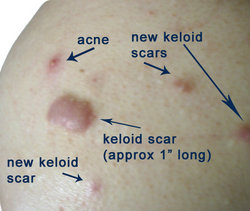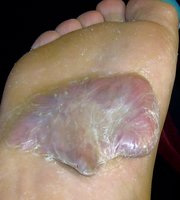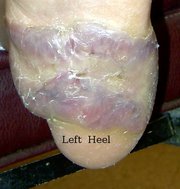Expert Advice on Health and Fitness
`What Can I Do If Viagra Has No Effect On My Husband's Impotence?'
VIAGRA AND IMPOTENCE
Q My husband, who just turned 50 in July, is taking Viagra. He has been impotent for the past seven years and this so-called miracle drug hasn't helped him at all. For years, he has refused counseling, and our sex life is suffering. Viagra didn't score here! I'm still waiting for my miracle to happen. What should I do? F.W., Birmingham, Ala.
A Viagra has been hailed as the new "sex pill," and thousands of impotent men say the drug has changed their lives. But before it became available by prescription, the manufacturer, researchers and other doctors were quick to indicate that the medication would not produce a "miracle" in each man who experiences some degree of erectile dysfunction. In fact, research revealed that Viagra is effective in 70 percent to 80 percent of impotent men.
If your husband's impotence is not due to a physical condition, perhaps you should be more insistent that he seeks counseling to see if his problem is due to depression or some other psychological condition.
Because sexual performance is the gauge many men, especially African-American men, use to determine their self-worth and self-esteem, be careful not to put too much pressure on your husband; he probably already is devastated to come home and not be able to sexually satisfy you.
CAUSE AND TREATMENT OF KELOIDS
Q My two sisters and I are battling keloid skin problems, and we are looking for answers. My mother has them on her ear lobes after having them pierced, and my 6-year-old daughter has one from scratching a scab from chickenpox. Please give us some information about how they can be removed. And, after being removed, can keloids grow again in the same area? M.M., St. Louis
Keloids--the smooth, shiny, frequently domed-shaped growths of fibrous tissue--form because of an abnormality in the body's mechanism that produces scar tissue. The abnormality causes an overgrowth of scar tissue that forms over areas of injury, surgical wounds, burns, severe acne or, like your mother, even in the area where an ear love is pierced. In some people, the growths, which are much more common in Blacks than Whites, can even be produced after a minor scratch.
Doctors have found that the treatment of keloids can be difficult because they respond poorly to therapy. Unfortunately, the surgical removal of keloids can leave a scar that might turn into another keloid. But some patients who undergo either conventional surgery or laser removal have found some satisfaction if the removal is followed by corticosteroid injections. Doctors say removing the keloid and treating the new scar with injections, X-rays, or both, may result in only a small scar. Other patients who bypass surgery and choose to rely on the monthly corticosteroid injections alone have seen, in some cases, the growths flatten somewhat.
See a dermatologist who can assess your condition and then suggest the treatment procedure that could work best for you.
EXERCISE AND DEHYDRATION
Q I am a 36-year-old exercise enthusiast who works out four times a week, and I sweat an awful lot. I don't get thirsty, so--even after the workouts--I don't drink a lot of fluids. My friends who exercise with me say I'm flirting with the danger of becoming dehydrated. Am I in the midst of a risky routine? T.C. Jacksonville, Fla.
A You are taking a substantial risk by not supplying your body with the proper amount of fluid. Nutritionists and other health officials say that the body requires at least eight glasses of water a day to function at its peak. Dehydration occurs when the body's output of water is greater than its intake. So if your sweat a lot during your workout, obviously those fluids need to be replaced or you might experienced dehydration, which in severe cases can lead to mental confusion and coma.
COPYRIGHT 1998 Johnson Publishing Co.
COPYRIGHT 2000 Gale Group




